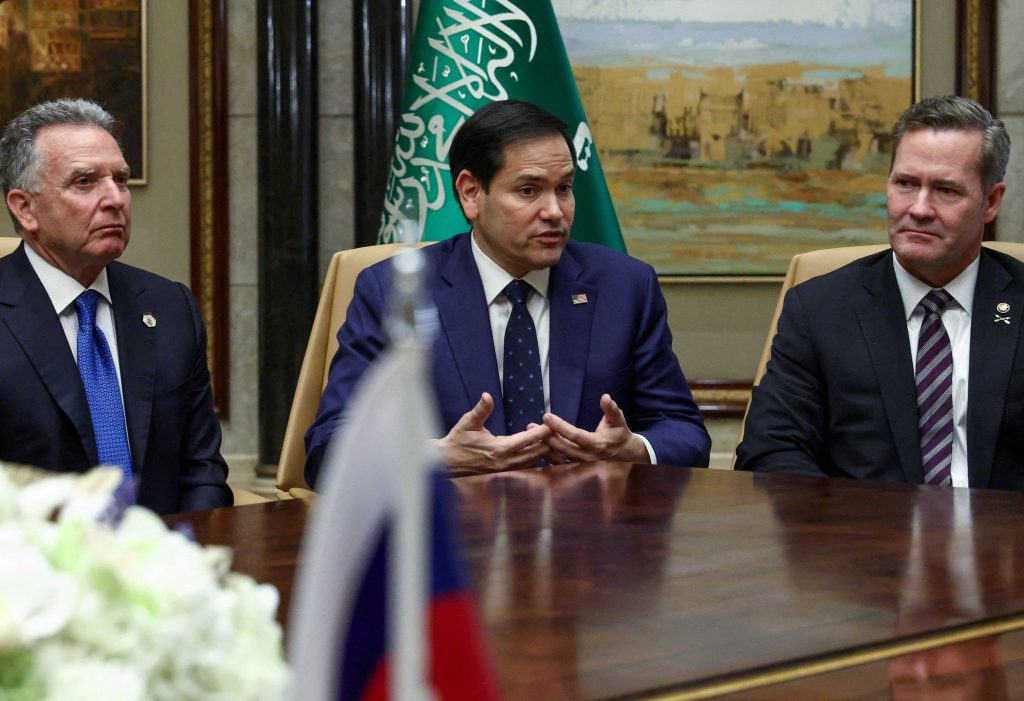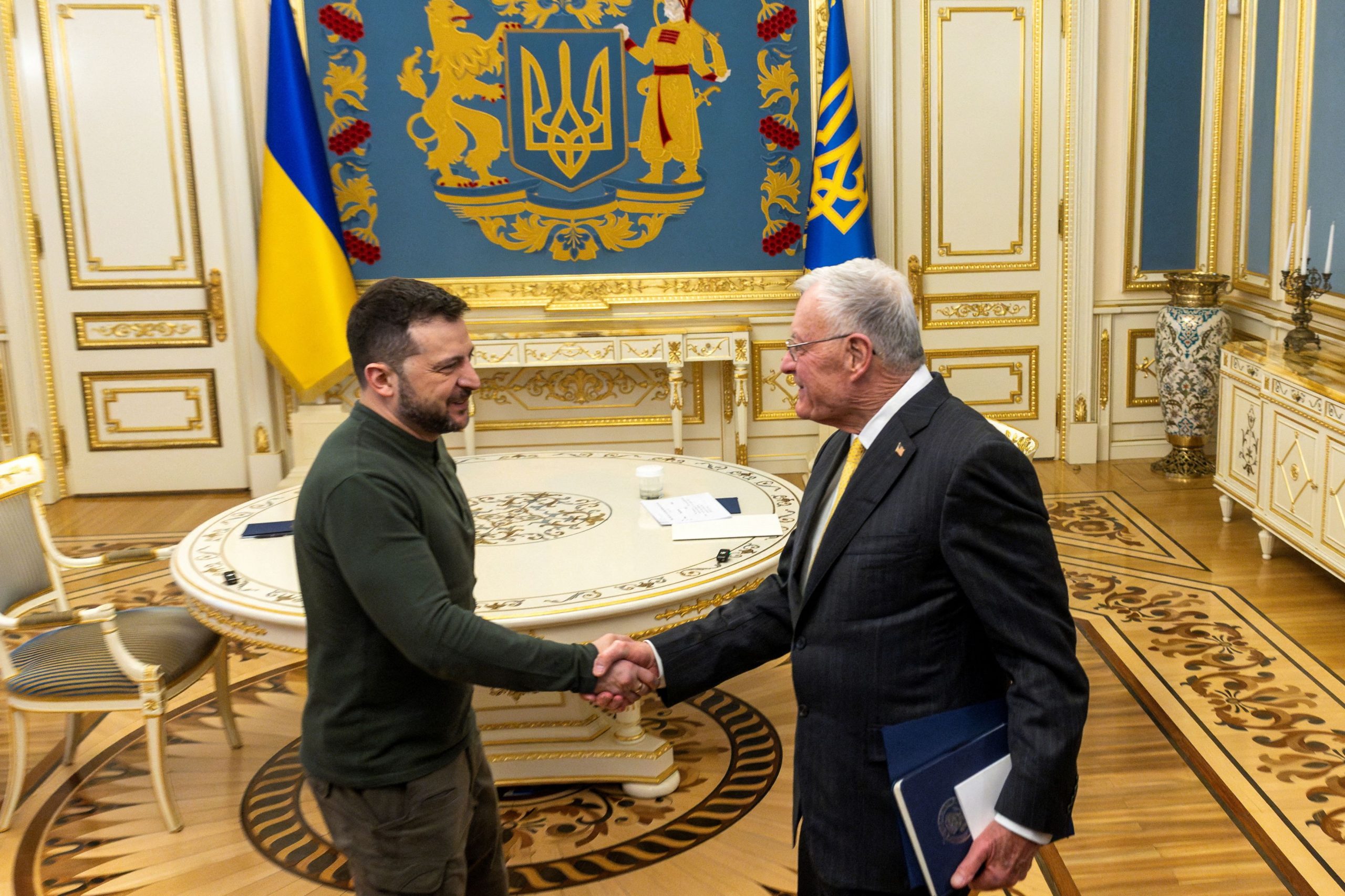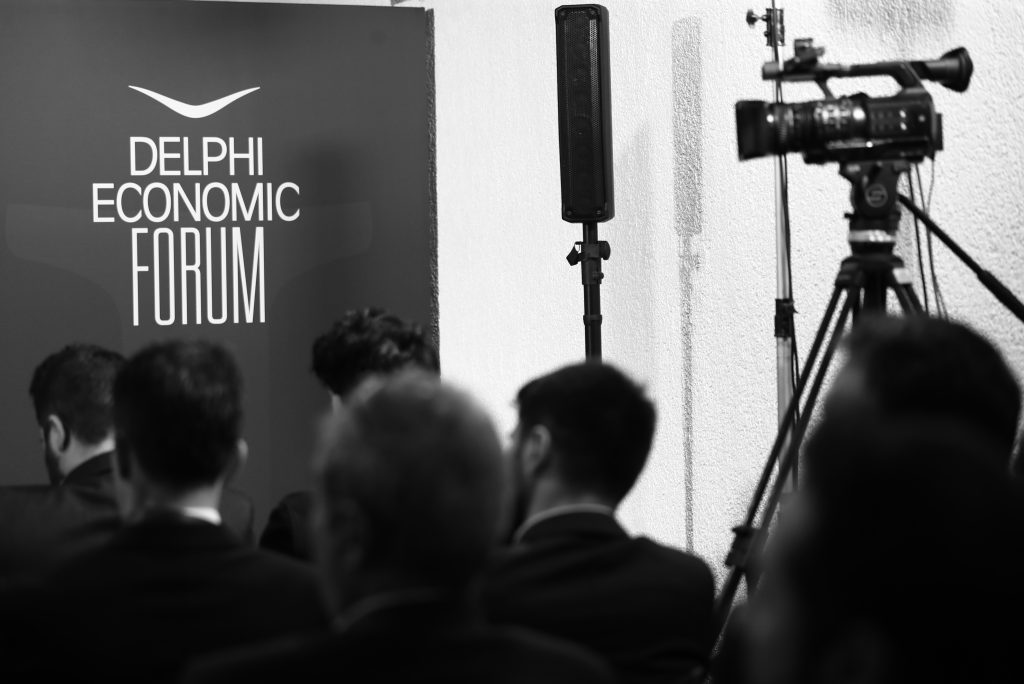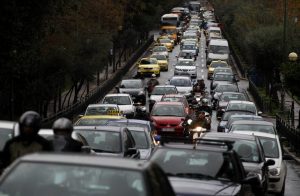Top Trump administration officials will meet with their Ukrainian counterparts in Saudi Arabia next week, as the White House seeks to set the stage for potential peace talks between Ukraine and Russia.
“The idea is to get down a framework for a peace agreement and an initial cease-fire,” said special envoy Steve Witkoff , who will be traveling with Secretary of State Marco Rubio and national-security adviser Mike Waltz to the meeting in Riyadh, Saudi Arabia, on Tuesday.
President Trump said Thursday he expected both Ukraine and Russia to sign a peace deal because they both had “no choice.”
“I think what’s going to happen is Ukraine wants to make a deal because I don’t think they have a choice,” he told reporters in the Oval Office. “I also think that Russia wants to make a deal because, in a certain, different way, a different way that only I know, only I know they have no choice either.”
The plans for the Riyadh trip were set after Trump abruptly cut off U.S. military assistance and intelligence to Kyiv following a contentious Oval Office meeting last week between Trump, his top aides and Ukrainian President Volodymyr Zelensky .
“It is sort of like hitting a mule with a two by four across the nose. You got their attention,” retired Lt. Gen. Keith Kellogg , Trump’s special envoy for Ukraine, said of the cutoff. “Very candidly, they brought it on themselves.” Russia launched its full-scale invasion of Ukraine in 2022.
Kellogg, who was speaking Thursday at a conference of the Council on Foreign Relations in Washington, was less precise about what kind of pressure the Trump administration might bring to bear on Moscow to encourage a peace settlement. He said that the U.S. might tighten enforcement of sanctions already imposed by the Biden administration earlier this year, but that the Trump administration was still assessing Moscow’s position.
Waltz, Rubio and Witkoff met with Russian officials in Riyadh last month to try to reset U.S.-Russian relations and lay the basis for eventual peace talks.

FILE PHOTO: U.S. Secretary of State Marco Rubio, U.S. National Security Advisor Mike Waltz, and U.S. Middle East envoy Steve Witkoff attend an interview after meeting with Russian Foreign Minister Sergei Lavrov and Russian President Vladimir Putin’s foreign policy advisor Yuri Ushakov, at Diriyah Palace, in Riyadh, Saudi Arabia, February 18, 2025. REUTERS/Evelyn Hockstein/Pool/File Photo
Trump has said that he wants to quickly resolve the conflict with Ukraine. But he has taken no concrete steps to pressure the Kremlin since his inauguration. No negotiations between Russia and Ukraine have been set, and in recent days the Kremlin has doubled down on some of its demands.
On Thursday, Russian Foreign Minister Sergei Lavrov said Moscow had rejected a British and French proposal to deploy peacekeeping troops in Ukraine, which the two members of the North Atlantic Treaty Organization had offered as a way to ensure that a future peace accord isn’t violated.
“We see no room for compromise,” Lavrov said. The deployment of European troops in Ukraine would mean the “undisguised involvement of NATO countries in a war against the Russian Federation. It’s impossible to allow this,” he said.
In Brussels on Thursday, Zelensky was given a warm welcome at a European Union leaders emergency summit to discuss Ukraine and the continent’s defense needs.
While Washington is pressuring Ukraine by suspending military support, European leaders are expected to pledge to step up military support for Kyiv. Their aim is to put Kyiv in a better position for any eventual negotiations, though European nations can’t match the full array of military capabilities and intelligence Washington has provided to Ukraine.
Several European countries have announced increased support packages for Kyiv in the last couple of weeks. On Thursday, Norway’s prime minister said its parliament had agreed to an $8 billion increase in aid for Ukraine this year.
Kellogg suggested that Zelensky needed to spell out to the White House what his basic demands would be in potential talks with Russia before Trump would consider fully restoring U.S. military support and intelligence.
“The push is to get them to engage in diplomatic activities,” said Kellogg, and to give the U.S. their “term sheet to get this to the table.”
Witkoff reinforced that theme, saying there was a “path back” to restore U.S.-Ukrainian relations.
“President Zelensky has demonstrated that he’s intent on that good faith path back,” said Witkoff. “He’s apologized. He’s said that he’s grateful. He said that he wants to work towards peace.”
Kellogg appeared to differ with Witkoff on what the framework for potential peace talks should look like.
Witkoff had appeared to embrace the Kremlin’s key talking point that Ukraine and Russia were about to strike a peace deal in Istanbul three years ago until Kyiv walked away from an agreement under pressure from Western politicians, such as then-British Prime Minister Boris Johnson . Those remarks alarmed Ukrainian officials, who say the Istanbul draft was never completed or approved by Zelensky.
A person familiar with Witkoff’s thinking said his comments weren’t intended as an endorsement of the Russian demands in the Istanbul talks, such as a sharp cut on Ukraine’s military and a ban on foreign military support for Kyiv.
Kellogg said the Istanbul framework wasn’t a sound basis for future talks and should be considered no more than “a departure point.” At the time of those 2022 talks, Russian troops had pushed deep inside Ukraine, he noted, while the war has now reached a debilitating stalemate.
“I think that we have to develop something entirely new,” said Kellogg “I don’t believe for all of us that it is an equitable framework.”
Kellogg defended the cutoff in U.S. military aid and intelligence , which he described as a temporary “pause,” as necessary to pressure Ukraine to be more realistic about the potential peace talks.
Asked about the impact on Ukraine’s ability to defend itself, he said Kyiv still had the ability “to continue to prosecute the fight.” But he acknowledged it would affect Kyiv’s military capabilities.
“If you take away support like that, of course it’s important. We know that. But that’s one of the reasons why it was done,” Kellogg said.
Kellogg argued for continuing aid to Ukraine in a paper he wrote last year, saying it would help deter Russia from attacking again after a cease-fire or settlement was reached. But he faulted Zelensky for the blowup in the Oval Office. Ukraine’s president erred, according to Kellogg, by trying to persuade Trump to side against Russia and continue military support to Kyiv. Trump, Kellogg added, was trying to be a neutral party between Kyiv and Moscow so he could get peace talks started.
Before the meeting, Kellogg said, a group of U.S. senators had counseled Zelensky on how to get through the meeting, which was to lead to a joint press conference between the Ukrainian leader and Trump and a minerals deal.
“President Zelensky misread the room,” he said.
Write to Alan Cullison at alan.cullison@wsj.com , Michael R. Gordon at michael.gordon@wsj.com and Alexander Ward at alex.ward@wsj.com



